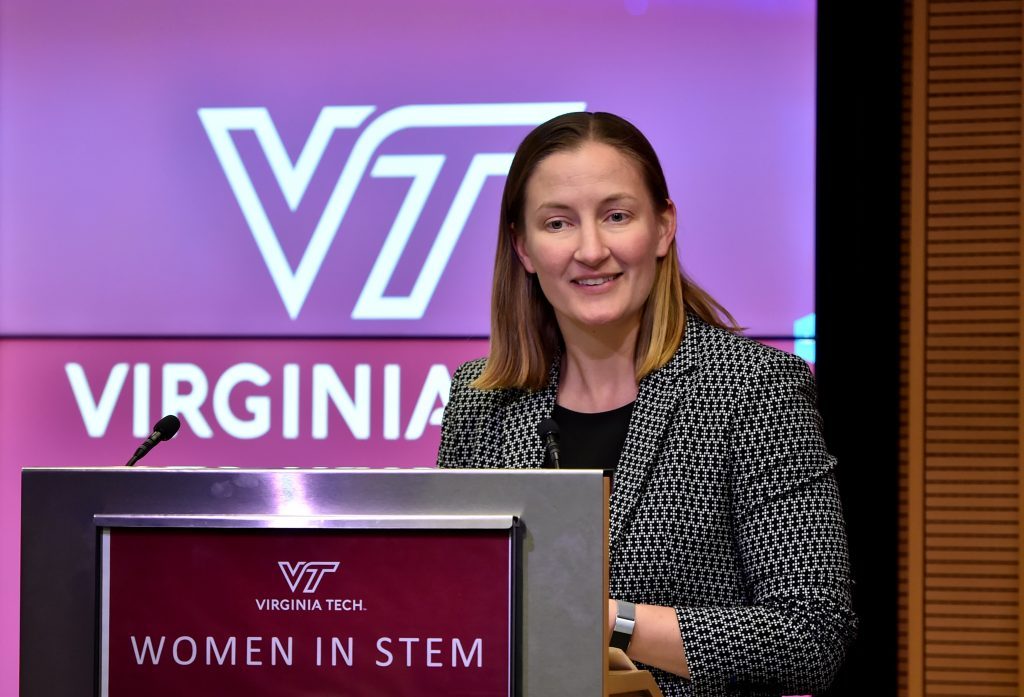
Laura Freeman, the Hume Center’s Intelligent Systems Lab director, works with faculty from the Stevens Institute of Technology and Georgetown University to help lead the Department of Defense’s new Acquisition Innovation and Research Center. Photo taken pre-COVID by Bill Petros, Virginia Tech.
Funded by the Department of Defense (DoD) and directed by the Office of the Undersecretary of Defense for Acquisition and Sustainment, the center will bring together higher education expertise to increase efficiency in the U.S. Defense Acquisition System to accompany the expansion of defense technology, obtaining goods and services from contractors, federal arsenals, and shipyards to support military operations can be a time-consuming and expensive process. With the development of the new center, participating researchers will study how to better acquire quality products and resources that support the armed forces in an efficient manner and at reasonable prices.The Virginia Tech-led team will also develop innovative policies to expedite the defense acquisition process that will ultimately support the DoD in its mission to ensure the nation’s security.The Virginia Tech-led team will also develop innovative policies to expedite the defense acquisition process that will ultimately support the DoD in its mission to ensure the nation’s security.
“The Acquisition Innovation and Research Center is about revolutionizing the way the Department of Defense acquires military technology,” said Laura Freeman, Acquisition Innovation and Research Center executive team member and the Ted and Karyn Hume Center for National Security and Technology Intelligent Systems Lab director. “This center is not about engineering the next generation radar. It’s about helping the government obtain the next generation radar efficiently, while making the most of citizens’ tax-paying dollars, and ensuring the DoD can acquire that radar at the speed of relevance to operational missions.”
In addition to Virginia Tech, Stevens Institute of Technology and Georgetown University will also lead the development of new policies and efficiencies with Virginia Tech faculty focusing on creating a data strategy to develop models and build simulations, developing data repositories, and standing up the center. A few challenges include understanding how intellectual property and resources factor in and determining what policies are needed to perform acquisition.
